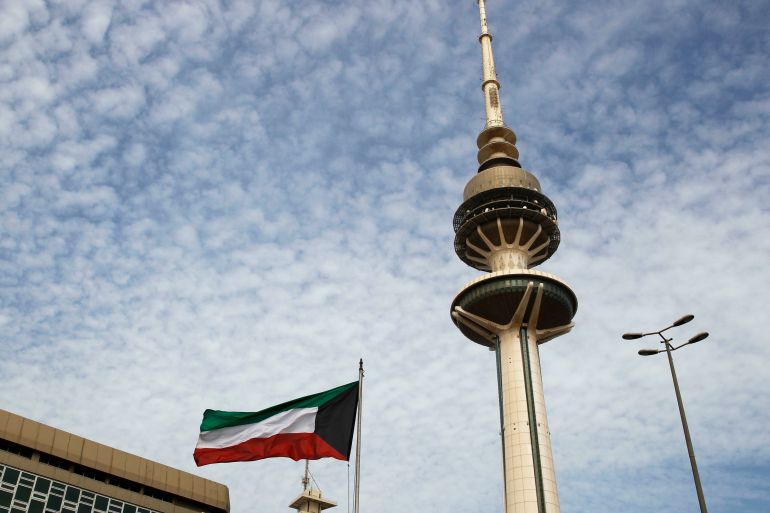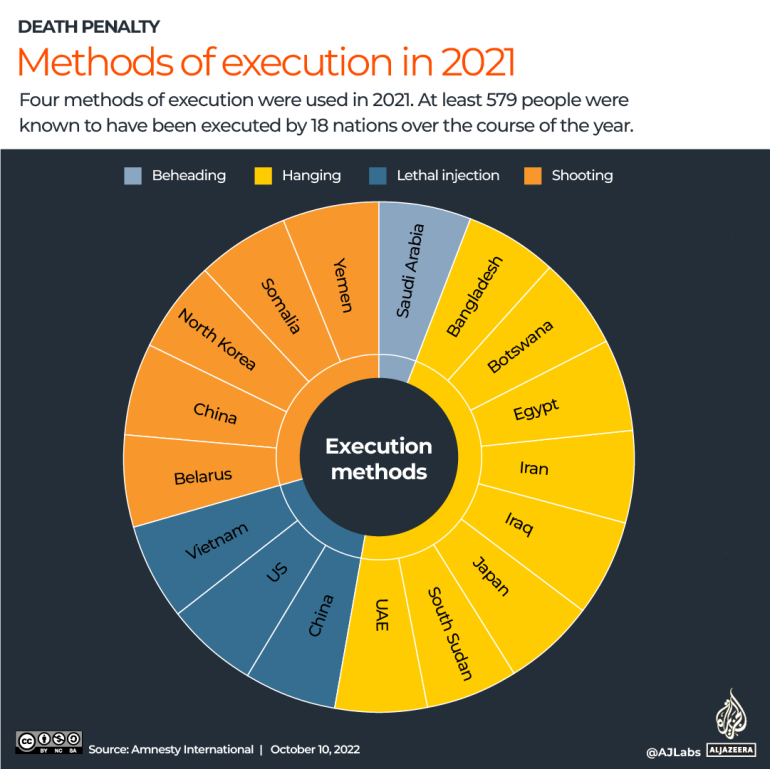Kuwait hangs seven people in first executions since 2017
Four Kuwaitis, a Pakistani, a Syrian and an Ethiopian were hanged, despite condemnation from Amnesty International.

Kuwait has put seven people to death in a mass execution, the state-run KUNA news agency confirmed, making it the first execution since 2017 despite appeals from human rights organisations for clemency.
The inmates who were hanged on Wednesday were four Kuwaitis, a Pakistani, a Syrian and an Ethiopian. Two of the seven were women.
Keep reading
list of 3 itemsKuwait hangs seven, including royal, in mass execution
Kuwait heads to polls in second legislative election in two years
It was the first execution since January 25, 2017, when seven people were also hanged, including one member of the royal Al-Sabah family, which has ruled the country for two and a half centuries.
Prominent rights organisation Amnesty International called on Tuesday for the executions to be halted, saying they were a “violation of the right to life and the ultimate cruel, inhuman and degrading punishment” and that Kuwait should abolish the death penalty “entirely”.
“[Kuwaiti] authorities must immediately establish an official moratorium on executions,” Amnesty’s deputy regional director Amna Guellali said in a statement.
The death penalty is widespread in the Gulf region, particularly in Iran and Saudi Arabia. In March, Saudi Arabia executed 81 men in a single day, making it the largest known mass execution carried out in the kingdom’s modern history.
Kuwait introduced the death penalty in the mid-1960s and since then has executed dozens of people, mainly those convicted of murder or drug trafficking.
In 2013, Kuwaiti authorities hanged three men convicted of murder in April. Two months later, two Egyptians, convicted of murder and abduction, were executed.
